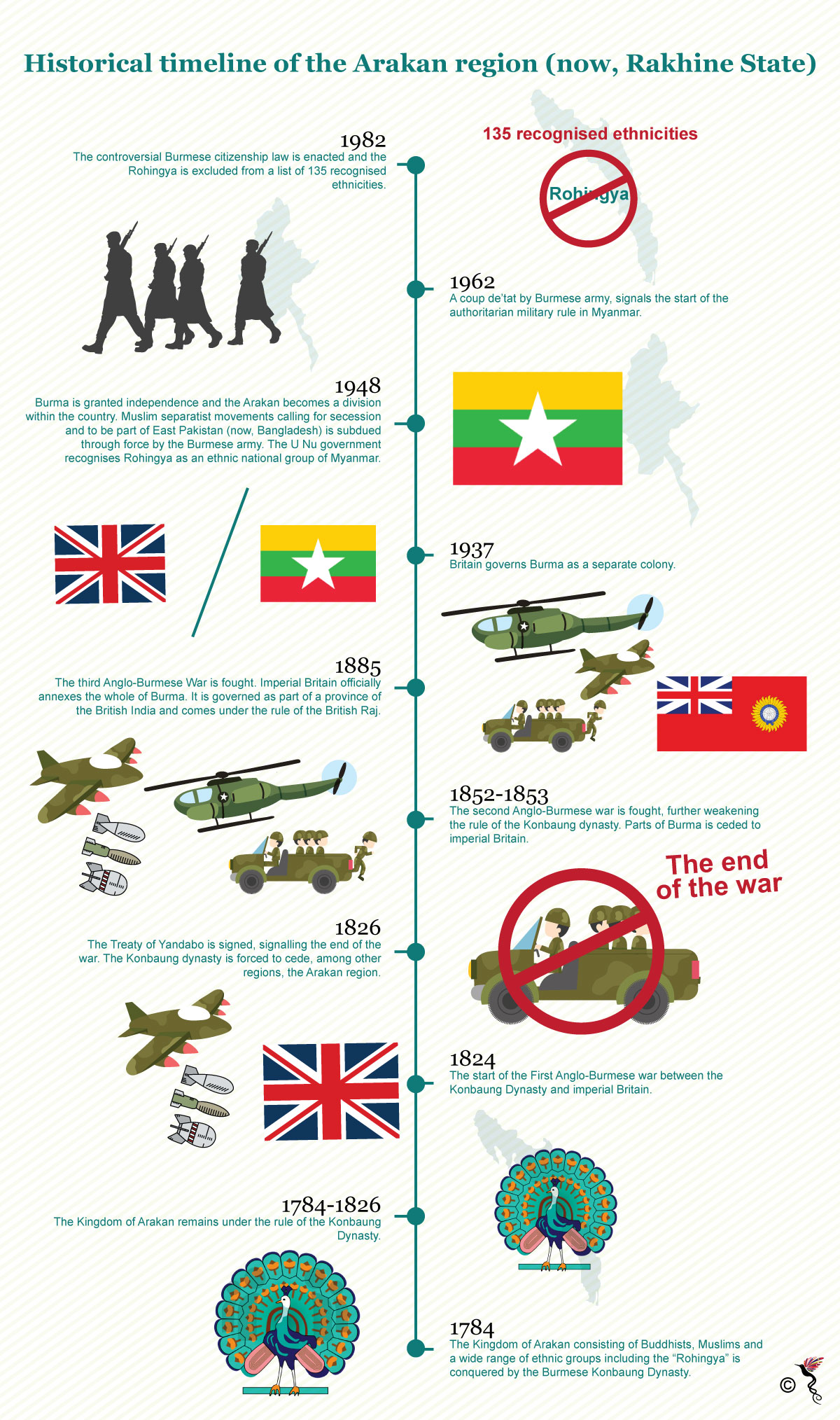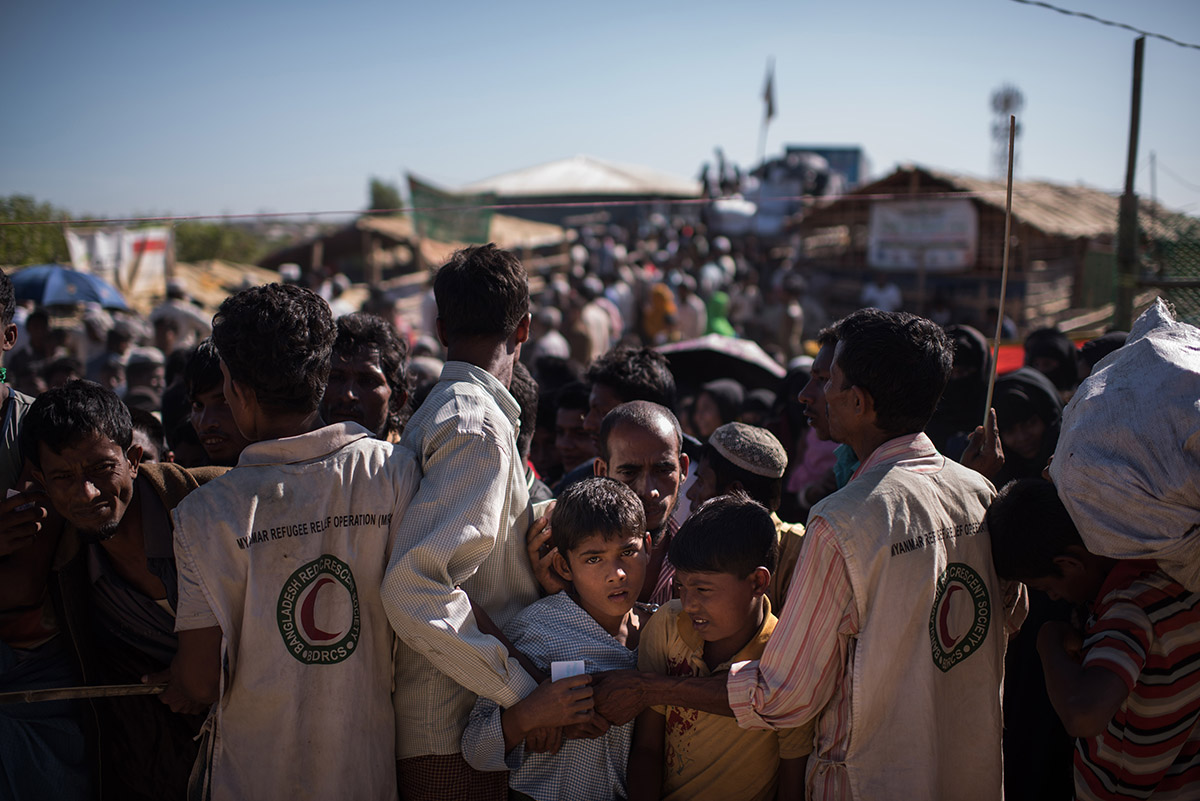The United Nations Human Rights Council passed a resolution condemning the systemic human rights violations in Myanmar against the Rohingya Muslims in the northern Rakhine State.
To date, more than 620,000 Muslim Rohingya men, women and children have fled Myanmar to Bangladesh – bringing with them stories of violence and atrocities committed by the Burmese military including murders, gang rapes and arson.
33 voted in favour of the resolution that indicated "the very likely commission of crimes against humanity" whereas three voted against and nine abstained. The countries that voted against were China, the Philippines and Burundi.
According to Chinese foreign ministry spokesman Geng Shuang, the resolution was not in favour of either Bangladesh, Myanmar or the international community’s interests.
“It will probably complicate the issue and have some negative influence on implementing the repatriation agreement between Myanmar and Bangladesh," Shuang was quoted as saying by Agence France Presse (AFP).
Responding to China’s actions, Nicholas Bequelin, East Asia Director at Amnesty International, said that Beijing has demonstrated how “woefully out of step” they are with the rest of the world on this issue.
“China has the diplomatic, humanitarian and economic resources to make a real difference in the lives of the Rohingya. But its current manoeuvring simply seeks to intervene only to preserve impunity for horrific crimes,” he said.
Nevertheless, he praised the eventual passing of the resolution and continued to urge the international community to “redouble efforts to urge Myanmar’s authorities, and in particular its military leadership, to immediately stop the violence and discrimination against Rohingya.”
Spokesperson for the Philippine government, Harry Roque defended Manila's vote in the council because "isolation and censure would only add to the difficulty the people there are now facing."
"We have expressed concern over the humanitarian situation in the Rakhine State. We are fully aware that it has deep historical roots and we acknowledge Myanmar’s efforts towards resolving the issues faced in the Rakhine State," he said in a statement.
The ASEAN response
The Association of Southeast Asian Nations (ASEAN) has been relatively muted over this crisis taking place in its backyard. However, there are signs that the organisation may step up efforts in handling this issue under Singapore’s chairmanship of ASEAN in 2018.
Speaking during the ASEAN: Next 50 lecture at the ISEAS – Yusuf Ishak Institute on Tuesday, Singaporean Foreign Minister, Vivian Balakrishnan addressed the importance for ASEAN to formulate a cohesive response to this thorny issue.
According to him, the first step is to recognise that there is no quick fix to the problem which has a deep historical antecedent, but action must be taken swiftly nevertheless as lives are being lost due to this crisis.

Timeline of the history of the Arakan Region in the present day Rakhine State of Myanmar.
“There is a humanitarian disaster and ASEAN has to stand for stopping the violence and stop violence now, making sure humanitarian assistance actually flows and at the same time, when you deliver humanitarian assistance, to understand that it is not an invading army of humanitarian workers,” he said.
He nevertheless reminded the room that in acting responsibly towards the crisis at hand, ASEAN must still hold dear to its design feature – that nothing can be done unless there is consensus.
Balakrishnan was cautious to not have mentioned the term “Rohingya”, which isn’t in the official lexicon of the Burmese government. Officially, there are called Rakhine Muslims and the government of Myanmar shares the belief that they originated from Bengali who then migrated to Rakhine State illegally.
Myanmar was recently visited by Pope Francis who addressed the humanitarian crisis but like Balakrishnan, avoided the “R-word.” The pontiff’s visit was hoped to have brought an air of change, as he sat down to discuss the refugee crisis with Myanmar’s top general and leaders.
“I believe the papal visit will create more and new incentives in Myanmar to try to resolve the crisis, because it is attracting growing world’s attention and concerns. Our immediate concerns should be on how to help the displaced Rohingya sheltering in camps on the Bangladeshi border cope with their life and livelihood on a day to day basis,” Fellow and Lead Political & Security Affairs Researcher at the ASEAN Studies Centre, ISEAS – Yusof Ishak Institute, Termsak Chalermpalanupap told The ASEAN Post.
It is difficult and premature to say that things are turning around for the Rohingya. Their plight will not be lessened by mere rhetoric. Nevertheless, the recent turn of events has shown the rigour – previously absent – of the international community in voicing out against the suffering of these refugees.
Definitely a step in the right direction, and hopefully a sign of better things to come.
Recommended stories:
